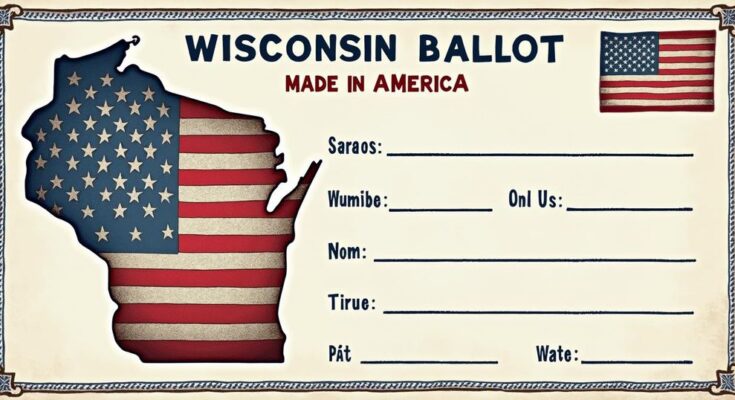The article discusses the contrasting trade and economic policies of President Trump and Vice President Harris in Wisconsin, focusing on the legacy of the Foxconn deal and recent Microsoft investments. It highlights the significance of manufacturing in voters’ decisions as both candidates campaign in a state known for its electoral importance, with Trump advocating America First policies and Harris promoting selective tariffs alongside a commitment to industrial investment.
In Wisconsin, the upcoming presidential election is significantly influenced by contrasting economic policies, particularly in light of the Foxconn deal. Initially celebrated as a landmark agreement, the initiative promised a $10 billion factory in Mount Pleasant, Wisconsin, with expectations of generating 13,000 jobs, backed by nearly $4.8 billion in tax subsidies. President Donald Trump’s visit in June 2018 marked the groundbreaking of the project, which he claimed would showcase America’s industrial resurgence. However, the Foxconn endeavor has largely faltered, with unmet hiring goals and substantial debt left in its wake after local homes were razed for the factory site. Currently, the political landscape includes President Joe Biden’s administration, which has emphasized bringing manufacturing back to the Midwest through targeted investment and protectionist policies similar to those of Trump. The recent arrival of Microsoft in the region, with significant investments totaling $3.3 billion projected to create 2,000 jobs, has sparked debates over which party is more capable of boosting the local economy. As economic policies become central to electoral strategies in Racine County—historically a bellwether for state elections—candidates from both parties are vying for support based on their visions for trade and manufacturing. Trump’s commitment to America First policies, including escalated tariffs on China, contrasts with Vice President Kamala Harris’s more ambiguous stance on trade, although she champions continued support for selected tariffs and a $100 billion tax plan for manufacturing. Moreover, both parties are aware of the skepticism lingering from the Foxconn experience, influencing voters’ outlook on future promises of economic development. Ultimately, the perception of the Foxconn deal—as both a failure and a cautionary tale—continues to resonate within voter discussions as politicians attempt to delineate the differences between past deals and current opportunities, particularly highlighting Microsoft’s investment as a more viable economic strategy for the state.
The article analyzes the political and economic implications surrounding the Foxconn project in Mount Pleasant, Wisconsin, initiated during President Donald Trump’s administration. Designed to leverage substantial state subsidies for job creation, the factory was marketed as a triumph of American manufacturing. However, the project has faced criticism due to its failure to deliver on job creation and the subsequent local economic burden. As the 2024 presidential election approaches, candidates appeal to voters using contrasting economic policies, particularly centered around manufacturing in vital swing regions like Wisconsin.
The upcoming presidential election in Wisconsin is poised to be significantly affected by contrasting economic policies exemplified by the failed Foxconn deal and the new Microsoft investment. Both Trump and Harris are leveraging these narratives to sway voters, with manufacturing at the forefront of their campaigns. The implications of past promises and the current economic climate will undoubtedly shape voter sentiment as Wisconsin approaches a crucial electoral decision.
Original Source: foreignpolicy.com




